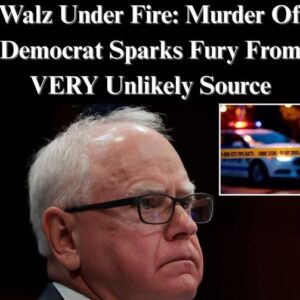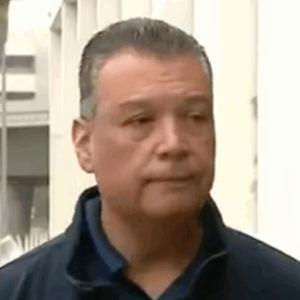Rome, April 22, 2025 – U.S. Vice President JD Vance today released a heartfelt statement mourning the sudden passing of Pope Francis, who died early Easter Monday at his residence in Casa Santa Marta, Vatican City. The announcement came barely 24 hours after Vance met privately with His Holiness on Easter Sunday—a brief audience that has now assumed profound significance as the Pope’s final public engagement.
A Solemn Morning at Casa Santa Marta
Shortly before dawn on April 21, Vatican officials confirmed that Pope Francis, aged 88, passed away peacefully in his quarters. Camerlengo Cardinal Kevin Farrell read an official communiqué from the Apostolic Palace:
“Dearest brothers and sisters, with deep sorrow I must announce the death of our Holy Father Francis. At 7:35 a.m. this morning, the Bishop of Rome, Francis, returned to the home of the Father.”
The notice made clear that the late Pontiff’s health had been in decline for months. He spent five weeks in Rome’s Gemelli Hospital earlier this spring recovering from a severe bout of bilateral pneumonia, compounded by complications from bronchitis. Though he returned to Casa Santa Marta under a “protected discharge” plan, his condition remained fragile.
An Unexpected Easter Sunday Audience
On Easter Sunday morning, April 20, Vice President Vance was among the select dignitaries granted a private audience with the Pope. According to Vatican media reports, the encounter lasted approximately 30 minutes and took place in the modest reception room inside Casa Santa Marta—a significant departure from the grandeur of the Apostolic Palace.
During the meeting, Pope Francis presented Vance with a thoughtful array of gifts for his family: intricately decorated chocolate eggs for his young children, a Vatican‑inscribed necktie, and several rosaries blessed by the Holy Father himself. In turn, Vance offered his personal well‑wishes and words of gratitude. Witnesses report that Vance remarked:
“Holy Father, I know you have not been feeling well, but it brings me joy to see you looking stronger. Thank you for receiving me today.”
The Pope smiled and gently replied, “God bless you and your family,” before escorting the Vice President to the door.
Vance’s Statement on Social Media
Less than twelve hours after leaving the Vatican, Vance learned of the Pope’s passing. He took to X (formerly Twitter) to express his condolences:
“I just learned of the passing of Pope Francis. My heart goes out to the millions of Christians all over the world who loved him. I was happy to see him yesterday, though he was obviously very ill.”
In the same post, Vance recalled a homily the Pope delivered in the early days of the COVID‑19 pandemic—a message of solidarity and hope that resonated globally:
“But I’ll always remember him for the homily he gave at the onset of COVID. It was truly beautiful. May God rest his soul.”
The Vice President’s words underscored the personal impact of Francis’s pastoral care during one of the most challenging periods of the 21st century.
A Pontiff of Dialogue and Compassion
Pope Francis’s papacy, which began in March 2013, was distinguished by his emphasis on mercy, social justice, and interfaith dialogue. He chose the name Francis to evoke the legacy of Saint Francis of Assisi, championing simplicity and outreach to the marginalized. His five-week hospitalization earlier this year followed similar health setbacks in 2024, including a hospitalization for bronchitis and intensive respiratory therapy.
Even as his physical strength waned, the Pope continued to lead by example. He convened landmark summits on clergy sexual abuse, reorganized Vatican financial oversight, and issued three major encyclicals—Laudato si’ (2015) on environmental stewardship, Amoris laetitia (2016) on family life, and Fratelli tutti (2020) on universal fraternity. In each, he addressed contemporary ethical challenges with pastoral sensitivity.
Shared Concerns: Conflict, Migration, and Climate
During their Easter Sunday meeting, Vance and Francis touched upon several pressing global issues. According to U.S. embassy sources, discussions included the ongoing crisis in Ukraine, the plight of refugees in the Mediterranean, and the moral imperative of environmental protection—areas on which the Pope had long been vocal.
This exchange highlighted both points of convergence and divergence. In February, Francis had publicly criticized the Trump administration’s immigration policies—particularly the proposed mass deportation program—warning that it would inflict “major crisis” and undermine human dignity. Vance, who served briefly as a policy advisor during that period, acknowledged the difference of opinion in a recent interview:
“Although we do not always see eye to eye on immigration, I have always respected the Pope’s earnest commitment to defending the most vulnerable.”
Reactions from Washington and Beyond
In Washington, President Alexander Barrett issued a formal proclamation declaring one day of national mourning. “Pope Francis was a beacon of compassion and a tireless advocate for peace,” the statement read. Members of the U.S. Congress, across party lines, observed moments of silence in both the House and Senate.

International leaders also paid tribute. French President Isabelle Durant released a joint statement with the leaders of Germany and Spain, describing the Pope as “a moral compass in turbulent times.” Ecumenical partners, including representatives from the Orthodox Patriarchate of Constantinople and the Anglican Communion, lauded his commitment to interreligious harmony.
Vance’s Reflection on a Papal Legacy
In his follow‑up remarks, Vice President Vance noted that meeting the Pope had been a highlight of his tenure:
“To sit with Pope Francis, even as he battled illness, was a profound privilege. His courage, humility, and unwavering faith left an indelible impression on me.”
He pledged to honor the Pope’s memory by supporting humanitarian efforts and fostering dialogue among faith communities in the United States. Vance’s office confirmed plans to host an interfaith prayer service at the Vice President’s residence next week, inviting clergy from Catholic, Protestant, Jewish, Muslim, and Hindu traditions.
Looking Ahead to a New Pontificate
With the Holy See now sede vacante, the College of Cardinals is expected to convene within the next two weeks to elect a successor. Cardinal Pietro Parolin, serving as Camerlengo, will oversee the transition. Observers believe that papal contenders who embrace Francis’s reformist agenda—particularly in finance, abuse prevention, and synodal governance—will hold a strategic advantage in the conclave.
Meanwhile, U.S. policymakers, including Vance, will navigate this period of ecclesiastical transition by balancing respect for Vatican protocol with the imperative to maintain robust diplomatic and pastoral engagement.
Conclusion
Vice President JD Vance’s statement in the wake of Pope Francis’s death captures both the personal loss felt by many who encountered the Pope’s warmth and the broader impact of his eight‑year pontificate. From their poignant Easter Sunday audience to Vance’s social‑media tribute, the Vice President’s reflections underscore the enduring influence of a spiritual leader who sought to bridge divides, defend the marginalized, and renew the Church’s mission in a rapidly changing world.
As the faithful worldwide mourn the passing of Pope Francis, the memory of his final public appearance—so closely entwined with Vance’s visit—will stand as a testament to his relentless dedication, even in the face of profound frailty. In death, as in life, Francis’s message of mercy and hope continues to resonate, inviting all to embrace compassion and solidarity in service of the common good.





